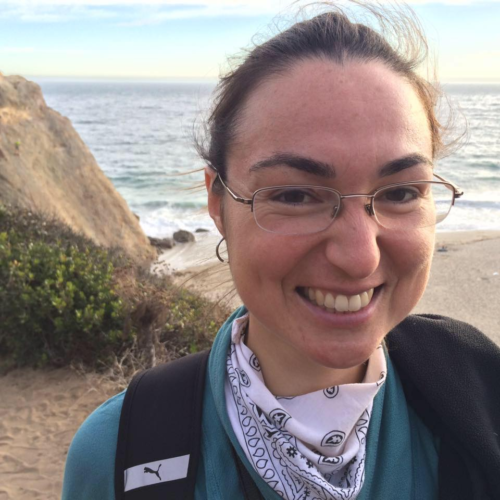By Miriam Green
 The festival of Sukkot is the season of the Jewish people’s greatest rejoicing. From the beginning of Elul through Rosh Hashanah and Yom Kippur, we reflect and strive for personal improvement. Then, following the Torah’s instruction to experience pure joy, we build a sukkah, a temporary dwelling place, and celebrate with family and friends.
The festival of Sukkot is the season of the Jewish people’s greatest rejoicing. From the beginning of Elul through Rosh Hashanah and Yom Kippur, we reflect and strive for personal improvement. Then, following the Torah’s instruction to experience pure joy, we build a sukkah, a temporary dwelling place, and celebrate with family and friends.
As we celebrate, we sit outside in the sukkah, a structure that is vulnerable to heat and to cold, constructed of natural materials that wither and dry throughout the week. In this structure, we can’t help but think of impermanence. The days grow shorter, the weather colder; plants wither, and we become aware that everything in life is fragile, that nothing can last forever.
The book of Kohelet, which we read on Shabbat during Sukkot, expresses acute awareness of this reality. “Hakol havel,” it says; everything in life is fleeting and impermanent. At BaMidbar, students will travel through the wilderness, creating and living in temporary dwellings. They will be impacted by rain, snow, and wind. They will ponder what they’ve had and what they’ve lost, both figuratively and literally, as they give up modern comforts and conveniences for their wilderness experience.
In our tradition, Kohelet gives voice to our innate human struggle with impermanence, and suggests a way to understand the ever-changing nature of life. “A season is set for everything, and a time for every experience under heaven – a time for birth and a time for death… a time for tearing down and a time for building up… a time for weeping and a time for laughing… a time for war and a time for peace” (3:1-8). Not all moments in life will be pleasant and easy. Indeed, some will be painful and difficult. This variety, this spectrum of experience, is the essence of life. Still, Kohelet concludes, “I learned that the best thing is to enjoy life, and to do good” (3:12).
In the wilderness, our students will discover their resilience, their ability to face change and appreciate that life’s experiences are diverse. Facing the ups and downs of life head on, we hope to help them discover what it means for them to do good and find joy, what it means to find meaning and purpose in all life has to offer.
As we continue in Sukkot, the season of our joy, may we embrace all of our experiences in life, both painful and joyful. And as the days of our year grow shorter, with darkness increasing, may we remember to always make room for light.

Miriam Green
Rabbinic Intern
Miriam Green is in her final year of rabbinical school at the Ziegler School of Rabbinic Studies in Los Angeles. She has served as a Rabbinic Intern and Spiritual Counselor at Beit T’Shuvah, a drug and alcohol rehab and community synagogue in Los Angeles, since 2015. Miriam currently serves as a rabbinic intern and curriculum developer for BaMidbar Wilderness Therapy.

